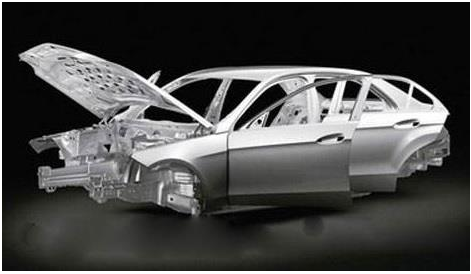Magnesium cast metal
Magnesium is strong, hard, and fully recyclable, making it the ideal alloy to save weight when you don’t want to sacrifice durability.
Looking for Lightweight Die Castings? Talk to our engineering team about how to utilize magnesium.
Advantages of Magnesium Die Castings
There are many benefits to casting with magnesium. Magnesium is not only the lightest of all structural materials, but also has an excellent stiffness and strength-to-weight ratio. In addition, it has excellent EMI and RFI shielding properties, making it ideal for connectors and electrical enclosures. It is also used in medical and laboratory equipment to prevent other interfering signals in hospital rooms.

Did you know that magnesium is very cost-effective compared to many engineering thermoplastics?
Other advantages of magnesium die castings include:
High electrical conductivity; electrical and thermal
Can withstand high operating temperatures
High dimensional accuracy and stability
Excellent Thin Wall Capability
Good environmental corrosion resistance
good finishing properties
fully recyclable

Can magnesium be die cast?
Magnesium die castings can be designed with thin walls in areas with low strength requirements and thick walls in areas with high strength requirements. Magnesium can be cast with thinner walls (1-1.5 mm) than aluminum (2-2.5 mm). Stiffness disadvantages of magnesium versus magnesium.
magnesium alloy
Magnesium (Mg), with a specific gravity of 1.74 g/cc, is the lightest commonly used structural metal. Alloy AZ91D offers the highest strength commercially available magnesium die casting alloy. Alloys AM50 and AM60 are used in applications requiring good elongation, toughness and impact resistance, as well as reasonably good strength and excellent corrosion resistance. Magnesium also offers longer die life than aluminum and exhibits the best machinability of any group of commercially available metal alloys.
Alloy AZ91D offers the highest strength commercially available magnesium die casting alloy. Alloy AZ91D is the most widely used magnesium die casting alloy. Is a high-purity alloy with excellent corrosion resistance, excellent castability and excellent strength. Corrosion resistance is achieved by imposing strict limits on three metallic impurities (iron, copper and nickel).
Alloy AM60 is used in applications requiring good elongation, toughness and impact resistance combined with reasonable strength and excellent corrosion resistance.
Magnesium alloys are widely used in life, such as automobiles, drones, bicycles and other industries. Please contact us if your project also applies to magnesium alloys.
-

- Magnesium foundry parts Steering column
-

- Customized foundry products high precision die-casting parts for e-bike integrated frame
-

- Magnesium alloy thixomolding die-casting UAV parts
-

- Magnesium alloy die-casting wheel for ebike
-

- Magnesium alloy bike parts & componenets for kid’s push bike
-

- Magnesium alloy thixomolding die-casting UAV parts

 0086-750-5616188
0086-750-5616188 +86 13392089688
+86 13392089688 sales@zhongmei-tech.com
sales@zhongmei-tech.com







